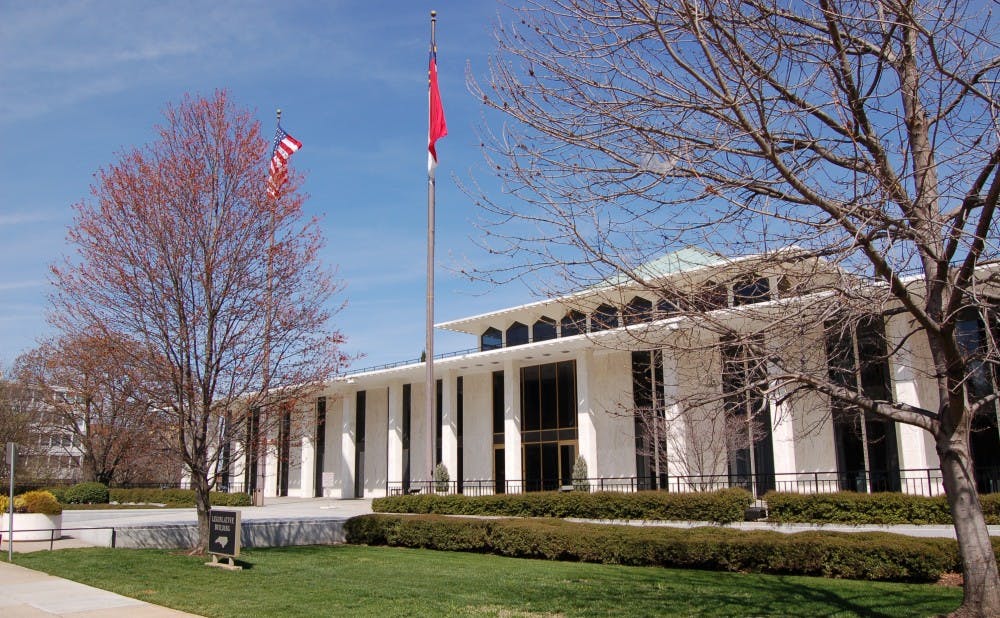Transgender women and girls in North Carolina will no longer be able to compete on most middle, high school and college-level sports teams corresponding with their gender identities, under a new ban enacted by the North Carolina General Assembly.
Legislators overrode Governor Roy Cooper’s veto of House Bill 574, also known as the Fairness in Women’s Sports Act, in a Wednesday vote. The veto was overridden 74-45 in the House and 27-18 in the Senate, garnering support from all Republicans and two Democrats, state Rep. Michael Wray and state Rep. Garland Pierce.
"We don’t need politicians inflaming their political culture wars by making broad, uninformed decisions about an extremely small number of vulnerable children that are already handled by a robust system that relies on parents, schools and sports organizations,” Cooper wrote in his veto message. “Republican governors in other states have vetoed similar bills because they hurt their states’ reputation and economy and because they are neither fair nor needed.”
The new law takes effect immediately and will affect the 2023-24 school year. It prohibits students “of the male sex” from playing on middle, high school and collegiate athletic teams “designated for females, women, or girls.” The new law applies to private colleges and universities, including Duke.
The ban only applies to college-level women’s sports teams that are part of an “intercollegiate athletic program” like the National Collegiate Athletic Association, and does not apply to collegiate intramural sports.
Current NCAA policy permits transgender student-athletes in women’s sports if they meet certain sport-specific standards, including documented testosterone levels. The new law would trump NCAA policy.
There have historically been transgender athletes on Duke’s sports teams, with the most notable being Quinn, Trinity ‘17, who played on the Duke women’s soccer team. The Toronto native made history during the 2020 Olympic Games when they became the first openly transgender athlete to ever win an Olympic gold medal as part of the Canadian women’s soccer team.
Transgender athletes on women’s sports teams from colleges or universities in states where their participation is legal will still be allowed to play in North Carolina. The new law does not prohibit transgender boys or men from playing on male sports teams.
Sylvia Hatchell, former head coach of the North Carolina women’s basketball team, has been a key supporter of the legislation. In 2019, Hatchell resigned due to controversy regarding complaints of “racially insensitive comments” and “pressure to play” when players were not medically ready.
“I support transgender athletes — their right to gender identity as they see fit,” Hatchell said at an April press conference. “However, competitive sport is one of the few places in our society where sex differences matter.”
The new law also applies to all public and many private middle and high schools. According to the North Carolina High School Athletic Association, there are about 15 openly transgender high school student-athletes out of the roughly 180,000 student-athletes in the state.
“People are thinking that we have a major issue, and we really do not,” NCHSAA Commissioner Que Tucker told the News & Observer in April. “People are probably thinking that we just have all of these born males playing female sports, but that really isn’t the case in North Carolina.”
The constitutionality of the law and similar laws across the country is currently being debated in federal courts. In February, a similar West Virginia law was temporarily blocked by a federal appeals court and, in April, the U.S. Supreme Court refused to intervene in the case and remove the hold. The law is being challenged on Fourteenth Amendment and Title IX grounds.
North Carolina now joins 22 other states in enacting bans that prevent transgender students from participating in sports consistent with their gender identity. A similar, nationwide ban passed the U.S. House of Representatives in April, but is unlikely to pass a Democratic-controlled Senate and be signed by President Joseph Biden, a Democrat.
Other bills affecting the LGBTQ+ community
Legislators also overrode four other bills, including two more affecting the LGBTQ+ community. One of the bills, House Bill 808, prohibits surgical gender transition procedures and puberty blockers for minors, with limited exceptions.
The other, Senate Bill 49 or the “Parent’s Bill of Rights,” restricts curriculum related to gender identity, sexual activity or sexuality in public elementary schools and requires teachers and employees to notify parents if their children change their names or pronouns on school records.
The two remaining bills changed various charter school and building code laws.
Get The Chronicle straight to your inbox
Signup for our weekly newsletter. Cancel at any time.

Jazper Lu is a Trinity senior and centennial/elections editor for The Chronicle's 120th volume. He was previously managing editor for Volume 119.

Andrew Long is a Trinity senior and recruitment/social chair of The Chronicle's 120th volume. He was previously sports editor for Volume 119.

